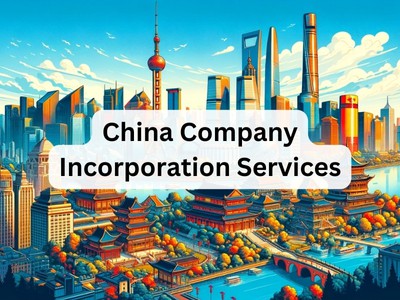This post is also available in:
![]() 简体中文 (Chinese (Simplified))
简体中文 (Chinese (Simplified))
Understand the Jurisdictions Setup Requirement Before Proceed Your China Company Incorporation Services
 China offers great opportunities for investors from all over the world. Before you start your business in Hong Kong, you should know what kind of business form you are going to invest.
China offers great opportunities for investors from all over the world. Before you start your business in Hong Kong, you should know what kind of business form you are going to invest.
There are five modes of business presence in China, which includes Wholly Foreign Owned Enterprise (WFOE), Partnership Enterprise (PE), Representative Office, Joint Venture and Hong Kong Company.
Wholly Foreign Owned Enterprise (WFOE)
100% ownership by its foreign shareholders, with an agreed level of foreign capital to be invested and registered with authorities.
Since March 1, 2014, no minimum registered capital is required for WFOEs with scope of business of consulting, trading, retailing, information technology, etc. However, there are minimum registered capital still required for some industries, for example, banking, forwarding, etc.
Representative Office (RO)
A liaison office of its parent company, with no registered capital. However, its activities are limited to product or service promotion, market research of parent company’s business, quality control or contact liaison in China. Generally prohibited from generating any revenue nor entering into contracts with local businesses in China.
Partnership Enterprise (PE)
Similar to WFOE, with little capital, partners could start business in China easily. No minimum registered capital required for Foreign Invested Partnership Enterprise.
Joint Venture (JV)
Limited Liability Company formed between a Chinese company investor and a foreign investor. JV has usually been used by foreign investors to enter the restricted in industries such as education, entertainment, mining, hospital, etc.
Hong Kong Company
Often used as a Special Purpose vehicle (SPV) to invest in Mainland China. Although a Hong Kong company is not a legal entity in mainland China, many foreign investors, especially investors from Europe and North America opt to form a Hong Kong company as SPV to invest in China.
On top of that, Free Trade Zone (FTZ) is a good choice of consideration to start your business in China. FTZ is one of the first in Mainland China that includes three bonded zones, Waigaoqiao port, Yangshan Deep-Water Port and Pudong International Airport with total of 28 square kilometres of coverage. There will be no declaration process for goods coming in and out of the zone according to Mr Huang Shengqiang, director general of Shanghai Customs.
This program is set to play a crucial role in the negotiations for the Trans-Pacific Partnership Agreement (TPP) and become the irst open window to help China join the TPP.
Apart from that, there are two major taxes for WFOEs and JV in China, which are Turnover Tax and Income Tax.
Turnover tax includes business tax or service and consulting business, VAT tax for trading and manufacturing business, etc. For business tax, 3-5% applies to the service oriented business based on the turnover; VAT tax, which applies to trading and manufacturing business, it is based on Value added part of the products.
As for income tax, includes corporate income tax and individual income tax. For corporate income tax, it’s 25% nationwide, based on the gross profit, except high technology business with tax incentives in special economic zone and encouraged industries in middle-western China.
Besides, other taxes include dividend tax, which is 20%; while 10% for public listed company.
As we all know about the “guanxi” as an important element in Chinese Business Culture, it is more convenient for you to engage agent in the start-up of your business. As needed, we at 3E Accounting will assist you at every step in order for you to be successful in China. Contact us today at [email protected] and we will promptly reply you within 24 hours.



